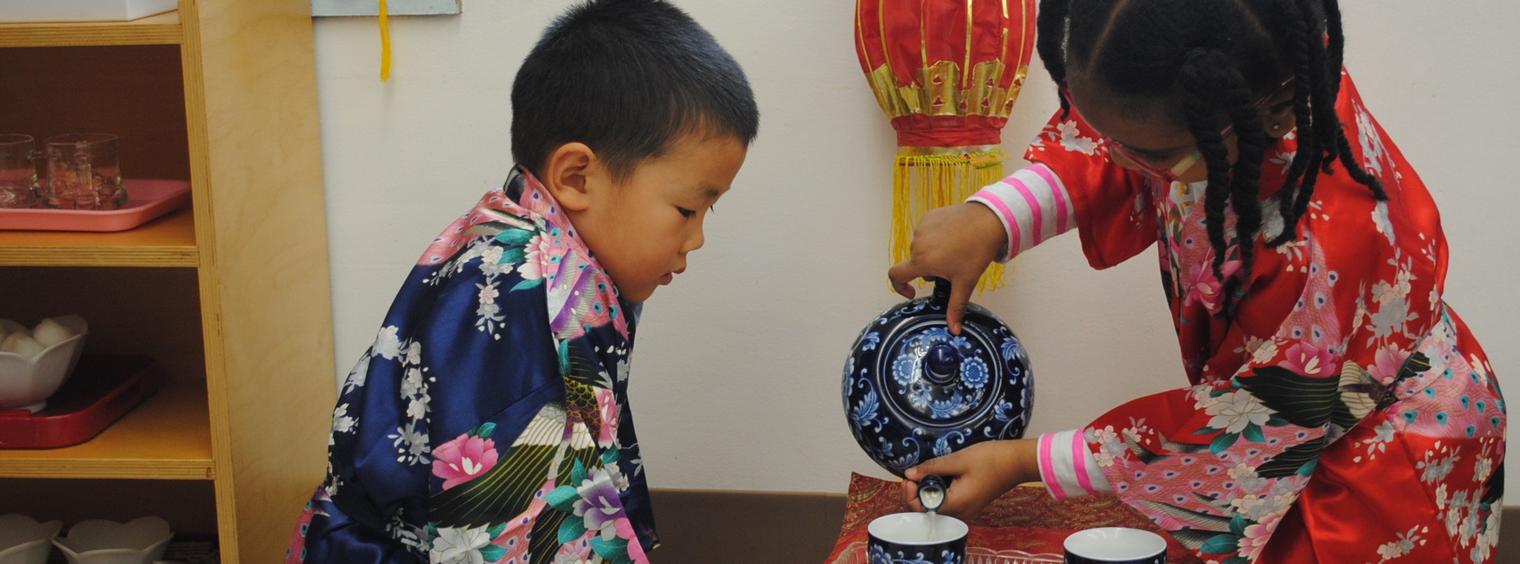

Learning by Exploring
“The senses, being explorers of the world, open the way to knowledge.” -Maria Montessori
Children at Walden explore the environment with beautifully designed hands-on Montessori materials. Beginning lessons such as pouring water without spilling, buttoning a shirt, or recognizing letters, build naturally into more complex lessons. During their Kindergarten year, children internalize and reinforce their earlier experiences as they master more advanced math, reading, and writing skills.
All children have a natural love of learning. Walden nurtures that love by giving each child the confidence to take on the many challenges that life presents while readying them for their next educational experience.
THE PRESCHOOL YEARS
The preschool program provides a safe and nurturing environment prepared for Walden’s youngest students, each classroom guided by experienced Montessori teachers. Children between ages 2 years, 7 months and 3 years of age by September 1 are grouped in classrooms designated specifically for our littlest learners as a “soft launch.” The following year, these students move into a more vertically grouped Montessori preschool classroom designed for students between the ages of 3 and 5.5 years of age by September 1.
Hallmarks of Walden's unique brand of Montessori are beautifully curated classrooms, a low student-teacher ratio that allows for individual attention, with an emphasis on community. Children are engaged in appropriately challenging Montessori work, which leads to independence, self-direction, and learning growth.
In the Montessori classroom all activities are referred to as “work.” The word “work” is meant to have the same positive meaning as the word “play.” The idea is to help the child understand that these activities are an enjoyable experience in which learners take pride.
Note Well: The Walden School requires that children entering the preschool program are toilet independent. The Walden School is not a daycare, and the preschool classrooms are not equipped for toilet independent training.
THE KINDERGARTEN YEAR
The kindergarten year at Walden is the time when many of the earlier lessons come together and become a permanent part of the young child’s understanding. Through the Montessori method children start as a novice, grow to an apprentice, and in their Kindergarten year, they become a leader.
Our Kindergarten curriculum is carefully structured and integrated to demonstrate the connections amongst different areas: critical thinking, composition, and deeper learning.
Learning to be organized and focused is as important as any academic work. During the second half of the kindergarten year, students are introduced to “Work Plans” as a means to plan and keep track of their work. As the year progresses, so does our kindergarteners' freedom in the classroom. The Work Plan gives students autonomy over their work choices. The end goal - that of a child who is a mature, independent adult - will be characterized by innate discipline.
Most people will follow rules when being observed or graded, but the true test of character is what a child does when left alone. When a child can make good choices when no one is looking, you can know that the combination of liberty and discipline is in perfect alignment. Work Plans are sent home at the end of each week so parents can celebrate their children’s accomplishments together!
